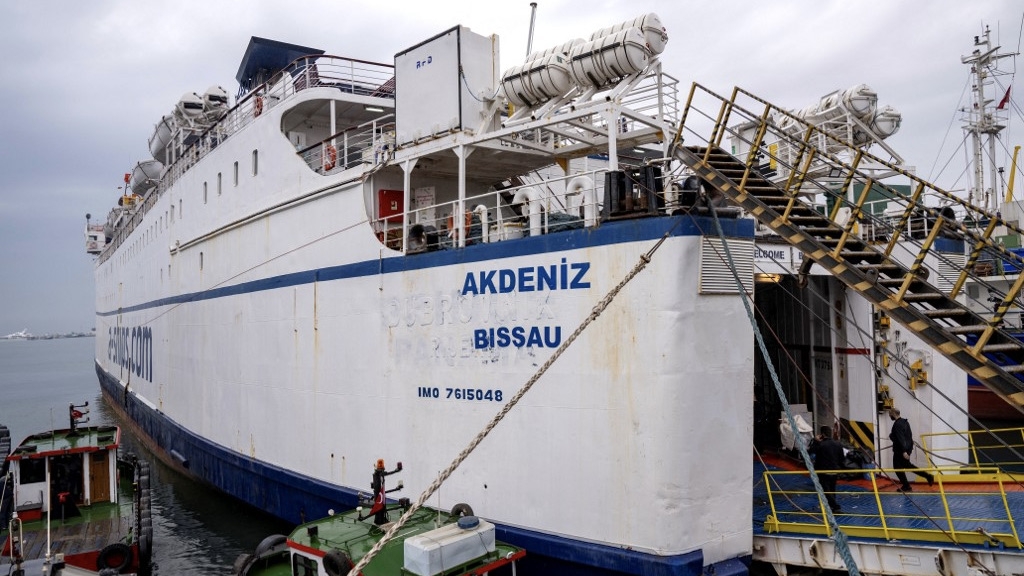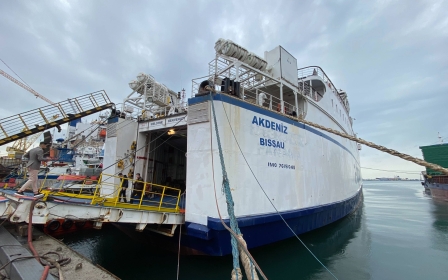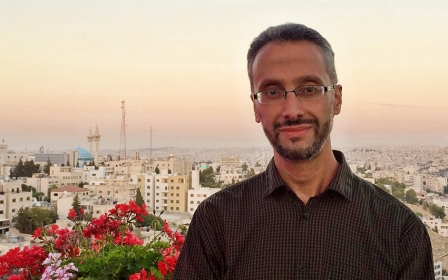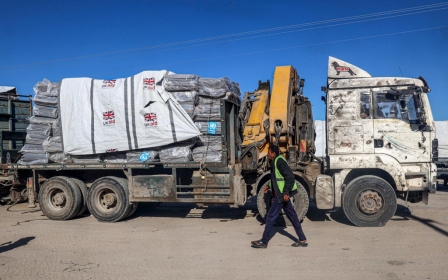Gaza 'freedom flotilla' blocked in Turkey

A "freedom flotilla" aimed at delivering aid to Gaza was blocked in Turkey on Saturday after being denied the use of two of its ships, which organisers blame on Israeli pressure.
The coalition of NGOs and other associations said it was unable to set sail after the West African country of Guinea-Bissau withdrew its flagged vessels, according to AFP.
"Sadly, Guinea-Bissau has allowed itself to become complicit in Israel's deliberate starvation, illegal siege and genocide of Palestinians in Gaza," the Freedom Flotilla Coalition said.
"The Guinea-Bissau International Ships Registry (GBISR), in a blatantly political move, informed the Freedom Flotilla Coalition that it had withdrawn the Guinea Bissau flag from two of the freedom flotilla’s ships, one of which is our cargo ship, already loaded with over 5,000 tons of life-saving aid," its statement said
The group said the Guinea-Bissau authorities made several "extraordinary" requests for information including destinations, potential additional port calls, cargo manifest, and estimated arrival dates and times.
Stay informed with MEE's newsletters
Sign up to get the latest alerts, insights and analysis, starting with Turkey Unpacked
"Normally, national flagging authorities concern themselves only with safety and related standards on vessels bearing their flag," it said, equating it to being asked about destinations when registering a car.
Silence
At an Istanbul press conference, about 280 volunteers - activists, lawyers and doctors - who had hoped to join the ships shouted slogans including "Flag the flotilla", "We will sail" and "Free Palestine".
Three of the flotilla's ships have been docked for a week at the port of Tuzla, south of Istanbul. They had planned to set sail on Friday.
Follow Middle East Eye's live coverage of the Israel-Palestine war
Turkish authorities and state media, who are generally keen to boast about the aid they have provided to Palestinian civilians in Gaza having organised 13 humanitarian flights and nine boats, have been silent about the flotilla.
In 2010, a previous "freedom flotilla" set off from the southern Turkish city of Antalya, leading to a deadly episode that soured relations between Turkey and Israel after Israeli military forces attacked one of the ships, the Mavi Marmara, leaving 10 people dead and 28 wounded aboard.
UN agencies have warned that maritime deliveries alone cannot deliver sufficient aid to ward off the threat of famine in Gaza and have called on Israel to open up more border crossings for road convoys.
'Non-violent resistance'
Ann Wright, of the Humanitarian Relief Foundation, the primary organiser of the coalition and a former US Army colonel who resigned in 2003 due to her opposition to the invasion of Iraq, told Middle East Eye earlier this month that they were determined to accomplish their mission.
"We know that the Turkish government is working hard diplomatically and in the humanitarian field. Yet, we expect their support and that of other governments for our mission," she said.
"There is no way that we can't sail. There is no way that we can't reach Gaza," she added.
Referring to the Mavi Marmara raid by the Israeli army, Wright said: "In case of such an attack, we'll expect all governments to uphold international law. According to international law, Israel has no right to raid a ship filled with civilians and humanitarian aid."
Huwaida Arraf, a human rights lawyer, said: "There is the possibility that Israel might attack us. We just hope they won't, as the whole world would be watching us.
"Even if they do, we’ll adopt non-violent resistance."
Middle East Eye delivers independent and unrivalled coverage and analysis of the Middle East, North Africa and beyond. To learn more about republishing this content and the associated fees, please fill out this form. More about MEE can be found here.




